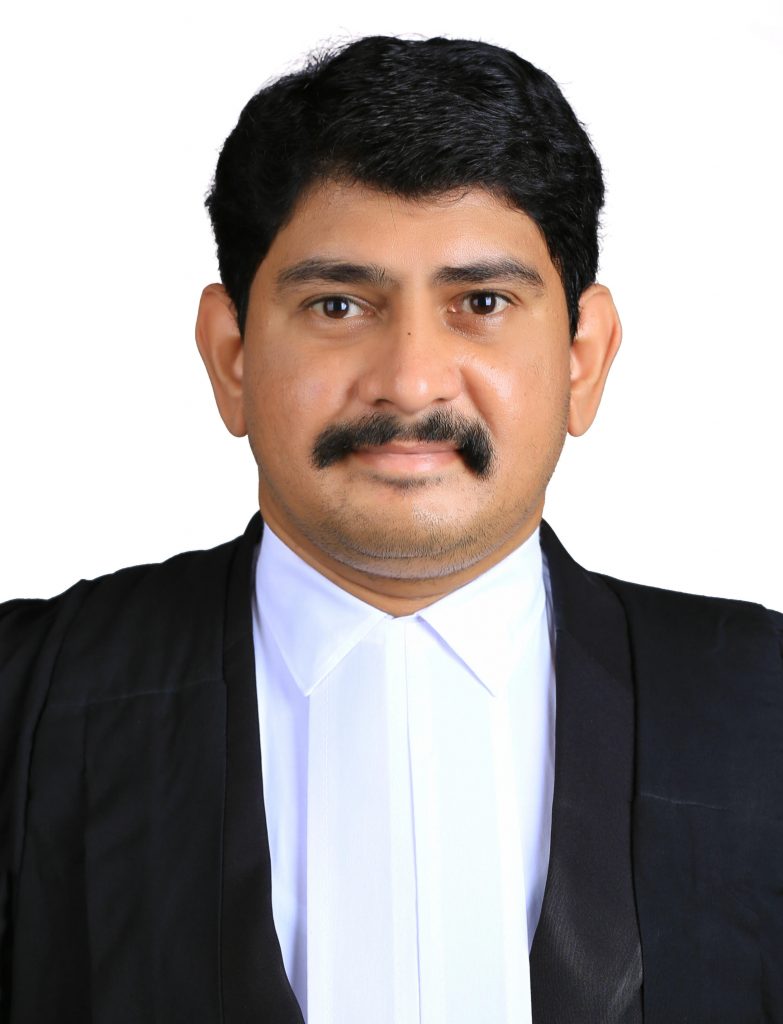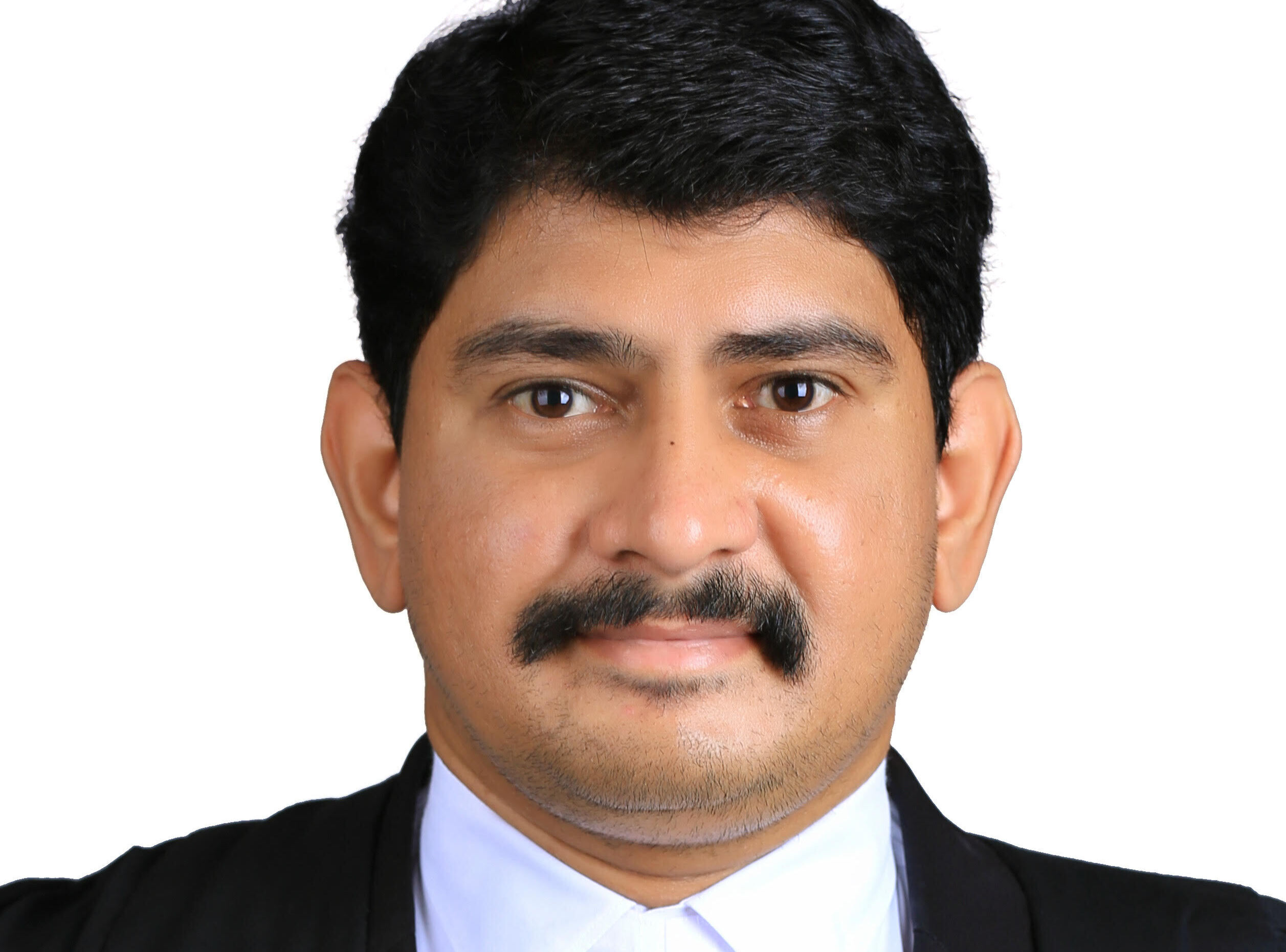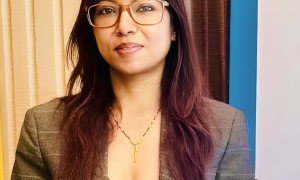This interview has been published by Anshi Mudgal and The SuperLawyer Team

Your legal journey began after completing your education at NALSAR University of Law. What motivated you to pursue law, and how did you get started in your career after graduation?
It was in the year 2003 when I completed my 12th class schooling. Thereafter, my orientation towards preparation for the civil services exam made me pursue Bachelor of Arts (B.A.) in a college at Hyderabad. It was during such time, where my inclination for pursuing Law degree course from the recognised National Law Schools in India made me to prepare for writing competitive entrance exams for each of the National Law Schools in India which enabled me to secure a Rank in Nalsar University of Law, Hyderabad in the year 2004 after discontinuing the graduation in Arts course. So, my basic motivation to pursue law was for one reason, to have a demanding and captivating career by having a graduation degree in law thinking it can also be useful for practicing law as a career and for the second reason that at the same time it can be used for preparation of Civil Services Examination through UPSC by taking Law as one of the optional subjects.
It was in the year 2009, I graduated with B.A., LL. B(Hons.) from Nalsar University of Law, Hyderabad and got enrolled as an Advocate in the year 2009 in the Bar Council for the State of Andhra Pradesh (Now State of Telangana). I had joined as an Associate in a law firm at Hyderabad in the litigation team. During that stage, my keen interest towards corporate litigation practice developed and my drafting abilities for preparation of various memos, petitions and counter affidavits for writ petitions were learnt including the observation of court proceedings in different judicial forums and arbitrations.
You have worked on a wide range of cases under the Companies Act and received commendations for achieving convictions. Can you share a memorable case that had a significant impact on your professional growth?
There are around three to four specific cases which were dealt by me under the Companies Act in which I have successfully achieved convictions with imprisonment, and they were claimed to be one of the rarest of rare cases as well under the Companies Act. One such interesting prosecution was related to a case filed under Section 628 of the Companies Act, 1956 where the Managing Director and a Director of a Company were impleaded as the accused on the basis that they were the signatories to the Balance Sheets which were uploaded online to the jurisdictional Registrar of Companies (ROC), and that case was proved by concluding that the Balance Sheets filed by the Company were false statements / false documents under Section 628 of the Companies Act, 1956, in which the Hon’ble Special Judge for Economic Offences Court at Hyderabad has sentenced the said accused with imprisonment and with fine.
As someone who handles corporate frauds and violations, what have been the most challenging aspects of prosecuting such cases, and what insights have you gained that you think every legal professional should be aware of?
When the Going Gets Tough, the Tough gets Going. Every prosecution is in itself a very challenging task, as the prosecutors never know on which point a defence counsel can challenge the whole case for it to be proved as a false case initiated and achieve acquittal of the accused. Sometimes, though the case has been properly conducted by the prosecutors, the end results don’t seem to have achieved the required result which disappoints us. However, it is stated that winning a case or losing a case should not be the priority but rather such results should enrich our knowledge thereby leading to improve our work experience in future times. Nevertheless, the prosecutor’s job is not always to secure the convictions of the accused at all costs but to place before the courts all such evidence to enable the courts to decide the cases appropriately in the interest of justice and equity. To be honest, a prosecutor’s job is tiring / stressful and is never appreciated. It is under these circumstances, when appreciation letters from the Government of India Ministry of Corporate Affairs were issued to me with the kind cooperation and supporting roles from the higher authorities of the office of ROC and the Regional Director, made me relieved with such stress and made me to be more responsible, diligent and furthermore to work hard. On the other hand, I would also like to state that there are various persons in my life since the time that I have joined the law course who have made me a complete person of what I am today. So, my gratitude towards such persons whether from family or friends or relatives is always heartfully indebted.
One of the challenging aspects of prosecuting cases where corporate frauds and violations are observed is about making ourselves equipped with the knowledge of latest precedents and apply the same to be fitted into the facts of each case. As the Companies Act is an evolving law day by day and is being amended with a view to strengthen corporate governance with the ‘ease of doing business’ for making the companies to be incorporated, the prosecution gets tougher to prove a case because non-compliance under the provisions of the Companies Act is not about always having elements like ill motive / malafide intention to defraud the public at large which includes public interest (non-compoundable offences) but rather it is also about technical in nature for the companies to comply certain mandatory compliances within stipulated time periods given under the law (compoundable and adjudicable offences).
What really matters is not only about how the prosecution is dealt with and conducted by a prosecutor or by an advocate being the defence counsels to defend their clients but to know the art of court craft / tactics to enlighten the Hon’ble Courts with the new set of precedents and on the new interpretations of law set by various judicial forums and to know for their applications in the times of need. It is important to enlighten the Hon’ble Courts with the exact interpretation of laws and the provisions available to enable the Courts to arrive at a just decision of a case. This skill also includes to immediately refer to the relied citations or draw the Court’s attention to the relevant document(s) on the point of alleged issues, so as to be clarified to the Hon’ble Courts when sought for.
Could you share some of the most significant challenges and learning experiences you’ve encountered as a Company Prosecutor in the Central Government service, and how these experiences have shaped your approach to corporate litigation and prosecution under the Companies Act?
I am a first-generation lawyer nor was there any first-hand experience at the time when I was recruited as a Company Prosecutor through the UPSC, to deal with prosecutions under the Companies Act. Therefore, each case dealt by me in the initial days was with a fear that I had in my mind that I should not commit any errors or mistakes while conducting trial proceedings like marking of each document as exhibits which also included the task to produce additional documents as exhibits to be marked wherever required, or by re-calling the prosecution witnesses / defence witnesses whenever required, etc. That thought of mind made me study the cases with attentive mind with the importance of the prosecution documents relied during trial and put forth in my final arguments before the Hon’ble Courts that the prosecution case on hand is a fit case to be prosecuted for making the accused punished in accordance with law beyond all reasonable doubt. My significant challenge or the learning experiences was when I needed to prepare for cross examination of the defence after Section 313 Examination of the Accused was completed. The questions that I prepare and pose during the cross examination of the defence emphasized on the allegations of the prosecution relevant to the facts of the case i.e. ‘the art of cross examination’ and at the same time to make the defence to admit the suggestions being put forth while referring to the exhibited documents, which made / makes my job easy during hearing of final arguments.
Therefore, my outlook towards corporate litigation is all about mandatory compliance of the Companies with the laws within stipulated time periods. On other hand, the Prosecutor should make sure that the prosecution is launched within the limitation period in order to realize that the accused or the defence side does not have an extra edge to get an acquittal / discharge based on the very technical issue of the prosecution complaint being barred by limitation. In other words, it means Vigilantibus Non Dormientibus Jura Subveniunt – “The law assists only those who are vigilant, and not those who sleep over their rights.” So, wherever I felt there was a necessity to file an application for delay condonation for filing the prosecution complaint before the Hon’ble Court of law, I made sure that the prosecution complaint was calculated with the exact number of days being delayed in filing the same before the Hon’ble Court and with a prayer being made before the Hon’ble Court on the grounds elicited in the petition so as to condone the delay in the interest of justice and equity. Merely an application for filing of Condonation of Delay is filed on behalf of the Prosecution, it does not mean the Hon’ble Courts will always accept the said Application. Therefore, it was one of the challenges that I specifically faced to apprise the Hon’ble Court that the delay being sought to be condoned on various grounds as requested does not make the defence / accused to be prejudiced and pray that it is also a matter of fact that public interest is involved so that the Company and its Directors are prosecuted rightfully in the interests of justice.
You have published legal articles and won accolades for your writing. How important do you believe legal research and writing are for a successful legal career, and what role have they played in your journey?
During my law school days, we used to have project works for each subject in each of the semesters. It was during those days, my interest for writing legal articles developed with my initial research work in projects. As law students we need to also undertake internships during semester breaks in various academic / government institutes, organizations, advocate offices, law firms, etc. When I started writing legal articles it was all about making my resume look better to draw the attention upon my resume on such skills I possessed with interest. For example, one of my project works in Law and Poverty course had made me to publish an article about the child labour issues which was related to an internship in an NGO that I underwent during 1st year law student. Later the said project work was further improvised with the concepts studied in Law and Poverty course and thereafter it was published in one of the leading journals of the Indian Institute of Public Administration (IIPA), New Delhi. I won the first prize in the best-case study competitions conducted by IIPA, which was an article written based upon the practical exposure that I had undergone during my internship and as well as by application of concepts that I learnt in the Law and Poverty Course. This was one such instance, where I can say my drafting skills and legal research were improved. As learning is a continuous process, I am still striving to continue with improving my skills wherever possible. In today’s scenario, writing and drafting skills are also helpful in all my court crafts while preparing for the written arguments to be submitted before the Hon’ble Courts.
Definitely, legal research and writing skills makes one life easier in terms of litigation practice when the advocates issue legal notices, file their petitions / applications / affidavits etc., before the Hon’ble Court of Laws by praying for the causes for which such applications are filed and seek for Orders. So as to reiterate once again, one has to keep themselves updated with the overall developments and legal precedents which can be useful for their cases in future. So writing skills or legal drafting skills helps once self to critically evaluate the issues in hand of a case and makes us think about concluding the issue with the application of provisions of law at the right stage and right point of time including providing the actual suggestions to improve the current situations in hand. Such skills can make one think about pursuing other professional plans in their career as well.
Your career journey has taken you from private law firms to a significant government role. How has this transition shaped your understanding of law and governance, and what advice would you offer to lawyers considering public service?
As stated earlier, my career plans were altogether different for the purposes of choosing law as a course subject during my graduation. So, my destiny made me pursue law which enabled me to join the Central Government Services as a Prosecutor under the Companies Act, though my action plan for the career was different. To be honest, it was only after joining as a Prosecutor that I can say that I fulfilled my dreams of getting into a Government Service though it was in a different field. By having stated the same, when my career with a private law firm was started, I was not confident enough in the litigation practice. It was only when the role of prosecutor’s job was undertaken before the Designated Special Court under the Companies Act, I feel I have improved my understanding of law, its true interpretation with its application to the facts of each case and then my argument skills were developed to impress upon the Hon’ble Courts for the desired results. Therefore, according to me, one can do their best when their performance of the task is done with whole heartedness and with passion towards it seeking for the end results as anticipated.
What has worked for me may not work for everyone pursuing law so that they may end up in Government Services. However, I can surely advise the younger lawyers to keep their options open when deciding about their future plans for litigation practice, that being in Government Services (whether State of Central) by conducting prosecutions as a Prosecutor can also fulfil their dreams of having a litigation practice from the Government’s perspective. This type of trail court practice enables one to understand the Government’s policies, Governance and application of law from the Government’s view. Therefore, one may also consider entering into public services, if interested, as one of their litigation practice plans by becoming Public Prosecutors / into Judicial Services etc.
As a mentor to upcoming lawyers and legal professionals, what advice would you give to those who aspire to specialize in corporate prosecution and arbitration? What are the key skills they should focus on developing?
Qualities like Focus, Priorities, Dedication and Determination (FPDD) are essential for the upcoming lawyers to be developed within themselves. One must firstly choose a field in which he/she is interested to pursue in their career. Based on such a chosen option, one must give priority to that chosen field to get the best results out of it by way of keen practice and acquiring knowledge on the chosen subjects. That can be possible by focusing on such priorities, without any unnecessary deviations in the mind set. Finally, it is only with utmost dedication and determination that those priorities focusing on end results can successfully be achievable.
Corporate Laws are one of the law subjects which have been evolving rapidly and amendments to various laws are being taken place by the Government of India with an intention of making Companies / LLPs to be incorporated ‘with an ease of doing business’. All the upcoming lawyers or legal professionals must keep themselves informed with such latest amendments by regularly updating themselves through legal references like law journals, newspaper articles etc. One must also have the practical exposure to appear before different judicial forums especially before the trial courts, as trial courts are the first and foremost important forums where the applicability of basic knowledge of laws studied during the study of law courses at graduation level are applied practically. For these purposes, all law students should try to participate in the moot court competitions that are being carried out as a part of their curriculum during their law course. This will enable them to articulate their ideas into expressions without any hesitation or vanish their stage fear and at the same time they inculcate the habit of learning about how to acknowledge the crux of the issues involved in a case by implementation of law provisions into the case on hand. Therefore, one should not only be involved in just study of law subject as a course in itself but must also jump into the practical field work for getting the true essence of being a lawyer by practicing law, right from doing internships during their law study etc. For such work experiences, one must need a source of inspiration from their friends or family or any senior professionals / colleagues who can be their guide throughout their career, which in turn can help them to get the in-depth work experiences as may be required.
As someone deeply involved in corporate prosecutions, what emerging trends in corporate law do you foresee, and how do you think legal professionals should prepare to address these new challenges?
Corporate Social Responsibility included as a part of Corporate Governance is one of the emerging trends in Corporate Laws. Further, important topics like acceptance of deposits by the Public, Corporate Frauds including related party transactions, oppression and mis-management, mergers and amalgamations under the Companies Act, Dissolutions and Voluntary Liquidations under IBC provisions are few important topics among others to mention a few, for which every legal professional interested to pursue litigation in corporate laws must be thorough with. One must comprehend that they advise their clients based on their own legal due diligence on what makes their corporate decisions to be good for their companies rather than doing an act which only appears to be good on paper but not in accordance with the true spirit of law. Further, I also advise that any legal opinions / advice to their clients must always ensure that their clients respond to the Notices issued from any Government body / agency for alleged non-compliance of laws, if any, by way of a reply to be issued within a stipulated period mentioned in the said Notices. The clients should be also advised that they should not ‘refuse’ nor ‘un-claim’ those Notices addressed to them from the regulatory / administrative bodies. By doing so, they will not welcome any unnecessary litigation that may crop up by side-lining the real concerns related to the companies concerns. Therefore, it is not only the requirement for the companies to be vigilant in compliance with the laws in a time frame but also the legal professionals to be watchful enough to oversee their client’s requirements with correct advice to be given at the right time to avoid any unforeseen legal complications. The duty of the lawyer is to make sure that their client’s grievances are addressed before the appropriate courts of law timely who are seeking for justice, whenever the proposed cause of action will arise or ought to have arisen.
With such a demanding career, what do you do in your free time to unwind and maintain a healthy work-life balance?
I travel with family, I like to paint and draw, I spend time with friends and watch movies during free time. I also like to focus on my physical and mental well-being / appearance by way of maintaining a fit body with exercises and walking / running.
Get in touch with Bharat Toodi-


























